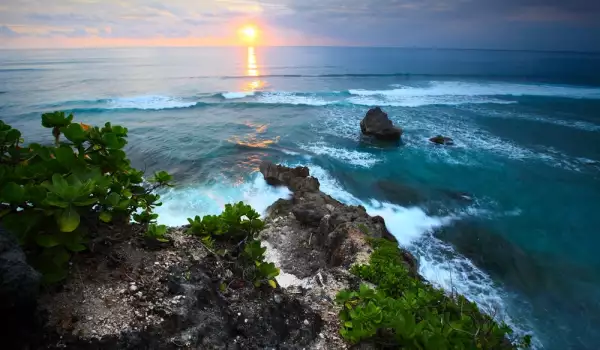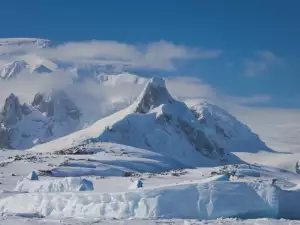A team of scientists from the University of New Mexico has discovered oceans underneath the Earth's surface, found 373 miles (600 km) beneath the Earth's mantle.
The oceans found below the Earth's surface are equivalent in volume to the amount on the surface.
The study is published in Live Science and the results from it show that the oceans beneath the mantle are a trapped mineral, called ringwoodite.
Scientists are hoping that this discovery will help them in the studying of the water cycle on Earth and the way in which the tectonic plates shift the water between the surface of the planet and the inner reservoirs.
The researchers hypothesize that the zone of the actual location of the oceans is between the Earth's mantle and core. The zone existing between them is about 255 - 410 mi (410 - 660 km), which contains water and rare minerals.
The mantle is the hot rocky layer between the Earth's core and crust, which is why some experts have their doubts about the discovery of the American researchers.

The scientific team from New Mexico states that they had conducted a series of experiments with the rich in ringwoodite water, after which they had analyzed the seismic waves passing through the mantle beneath US territory and had studied a number of models.
According to the scientists, the fact that the material melts shows that it can traverse the mantle and reach the specified zone before the Earth's core.
"Since we're observing melting, this means that there must be water in the transition zone. The transition zone may contain a huge quantity of water, it is possible for it to be as much as all of the oceans on Earth, " states seismologist Brandon Schmand from the University of New Mexico, co-author of the study.
According to Schmand and his colleagues, the fact that the seismic waves slow down during their passing toward the lower layers of the mantle proves that the melting of the ringwoodite mineral occurs on the border between the Earth's mantle and core.
The melted material returns back up, turning into a mineral once more, which contains water.









